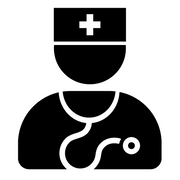
If a doctor recently diagnosed you with diabetes, it’s natural to feel upset. However, there are many ways to manage this disease and enjoy a long, healthy, active life. Get started with your diabetes education here as part of your commitment to a healthy lifestyle.
Frequently Asked Questions About Diabetes
Are there types of diabetes?
Diabetes comes in three forms: Type 1, Type 2, and gestational. Type 1 diabetes is an inherent autoimmune disease where the body destroys insulin-producing cells from the pancreas. Insulin is a hormone created in the pancreas that allows the body to use blood sugar, or glucose, for energy. Why Type 1 diabetes occurs remains unknown, though it results in high blood sugar that causes various bodily damage.
Type 2 diabetes causes the body to utilize insulin inefficiently, with risk factors including a high-sugar diet, obesity, lack of exercise, and genetics. Gestational diabetes occurs from insulin-blocking hormones generated by the body during pregnancy. It typically goes away following birth, though it does increase the risk of Type 2 diabetes.
What does "prediabetes" mean?

When a person is diagnosed as prediabetic, they have higher blood sugar levels than normal. However, blood sugar levels are not severe enough to be considered diabetes. As with gingivitis, the precursor to gum disease, prediabetes is reversible with a healthy lifestyle. Common symptoms of prediabetes include frequent urination, increased thirst, fatigue, unintentional weight loss, recurring infections, and blurred vision.
What complications does this disease cause?
Diabetes increases the risk of numerous other health issues, including diabetic retinopathy, where high blood sugar levels damage blood vessels in the eyes and can eventually cause blindness. Other complications include heart attacks, strokes, and heart failure. This last effect stems from high blood sugar damaging heart-related blood vessels and nerves, resulting in high blood cholesterol and blood pressure problems.
How can I manage it effectively?
Managing diabetes depends on the specific disease. Type 1 diabetes requires daily insulin shots, since the body no longer produces the hormone, and monitoring blood sugar levels throughout the day. Managing Type 2 diabetes involves blood sugar monitoring, taking medication that supports efficient insulin usage, and maintaining a healthy diet and exercise regimen. Among the best foods for Type 2 diabetes are those with no refined sugar, including nuts, whole grains, beans, and dark leafy vegetables. Doctors provide customized plans for helping each patient manage their diabetes effectively.
For help managing diabetes and other health issues, trust the doctors at Chewelah Associated Physicians PS. This family health care center in Chewelah, WA, provides area residents with a full suite of services, including pediatrician and OB-GYN services. Call (509) 935-8711 today to make an appointment with the doctors or learn more about services.
About the Business
Have a question? Ask the experts!
Send your question

